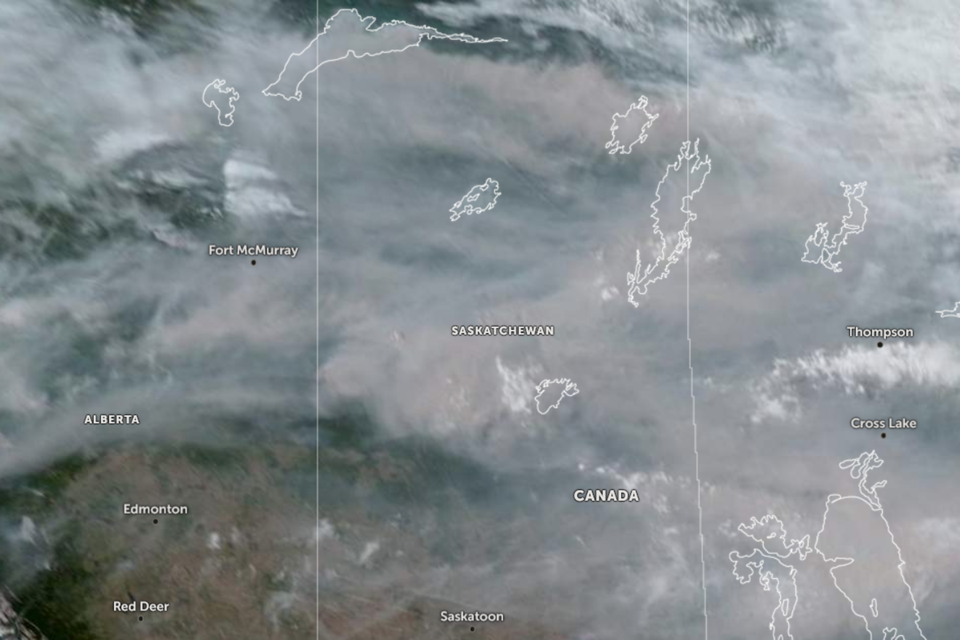A special air quality statement is in effect for areas across northern Manitoba and Saskatchewan, with smoke from fires in northern Alberta and Saskatchewan wafting to the east.
A statement for the area around Flin Flon, Creighton, Denare Beach and Snow Lake was called around 3:40 p.m. Sunday afternoon by Environment Canada. Winds coming into the region from the west are bringing in thick fire smoke and will continue to do so into Monday. The smoke is causing both poor air quality and reduced visibility.
"A cold front slumping southwards through Manitoba is concentrating forest fire smoke from wildfires over the northern Prairies along it. As this front slumps southwards on Monday, it will drag a band of thicker smoke southwards through the Flin Flon and The Pas regions," reads the statement.
Fires throughout northern Alberta and Saskatchewan have caused people to be evacuated from communities across the regions - long stretches of heat with little to no rainfall have made matter worse. No fires are active around Flin Flon, Creighton or Denare Beach as of May 14.
According to forecasts from firesmoke.ca, the smoke is likely to lighten later on Monday and tail off altogether into early Tuesday morning - winds are expected to shift from westward to northward, but another west wind could propel more smoke back toward the area towards noon Tuesday.
"Wildfire smoke can be harmful to everyone’s health even at low concentrations. Everyone can take action to reduce their exposure to wildfire smoke," reads the statement.
Environment Canada urges caution for people who have lung conditions or heart disease, older adults and children or anyone who works outdoors, is pregnant or is at higher risk of health complications.
"Stop or reduce your activity level if breathing becomes uncomfortable or you or someone in your care feel unwell. Contact your health care provider or local health authority if you develop severe symptoms or need advice," reads the statement.
"Take a break from the smoke at a location in your community where you can find clean, cool air."




